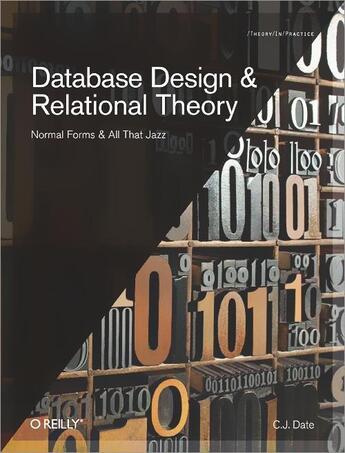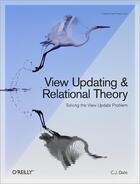-
Nombre de pages : (-)
-
Collection :
(-)
-
Genre :
(-)
-
Thème :
Non attribué
-
Prix littéraire(s) :
(-)
Résumé:
What makes this book different from others on database design? Many resources on design practice do little to explain the underlying theory, and books on design theory are aimed primarily at theoreticians. In this book, renowned expert Chris Date bridges the gap by introducing design theory in... Voir plus
What makes this book different from others on database design? Many resources on design practice do little to explain the underlying theory, and books on design theory are aimed primarily at theoreticians. In this book, renowned expert Chris Date bridges the gap by introducing design theory in ways practitioners can understand-drawing on lessons learned over four decades of experience to demonstrate why proper database design is so critical in the first place. Every chapter includes a set of exercises that show how to apply the theoretical ideas in practice, provide additional information, or ask you to prove some simple theoretical result. If you´re a database professional familiar with the relational model, and have more than a passing interest in database design, this book is for you. Questions this book answers include: Why is Heath´s Theorem so important? What is The Principle of Orthogonal Design? What makes some JDs reducible and others irreducible? Why does dependency preservation matter? Should data redundancy always be avoided? Can it be? Databases often stay in production for decades, and careful design is critical for avoiding subtle errors and processing problems over time. If they´re badly designed, the negative impacts can be incredibly widespread. This gentle introduction shows you how to use important theoretical results to create good database designs.
Donner votre avis















